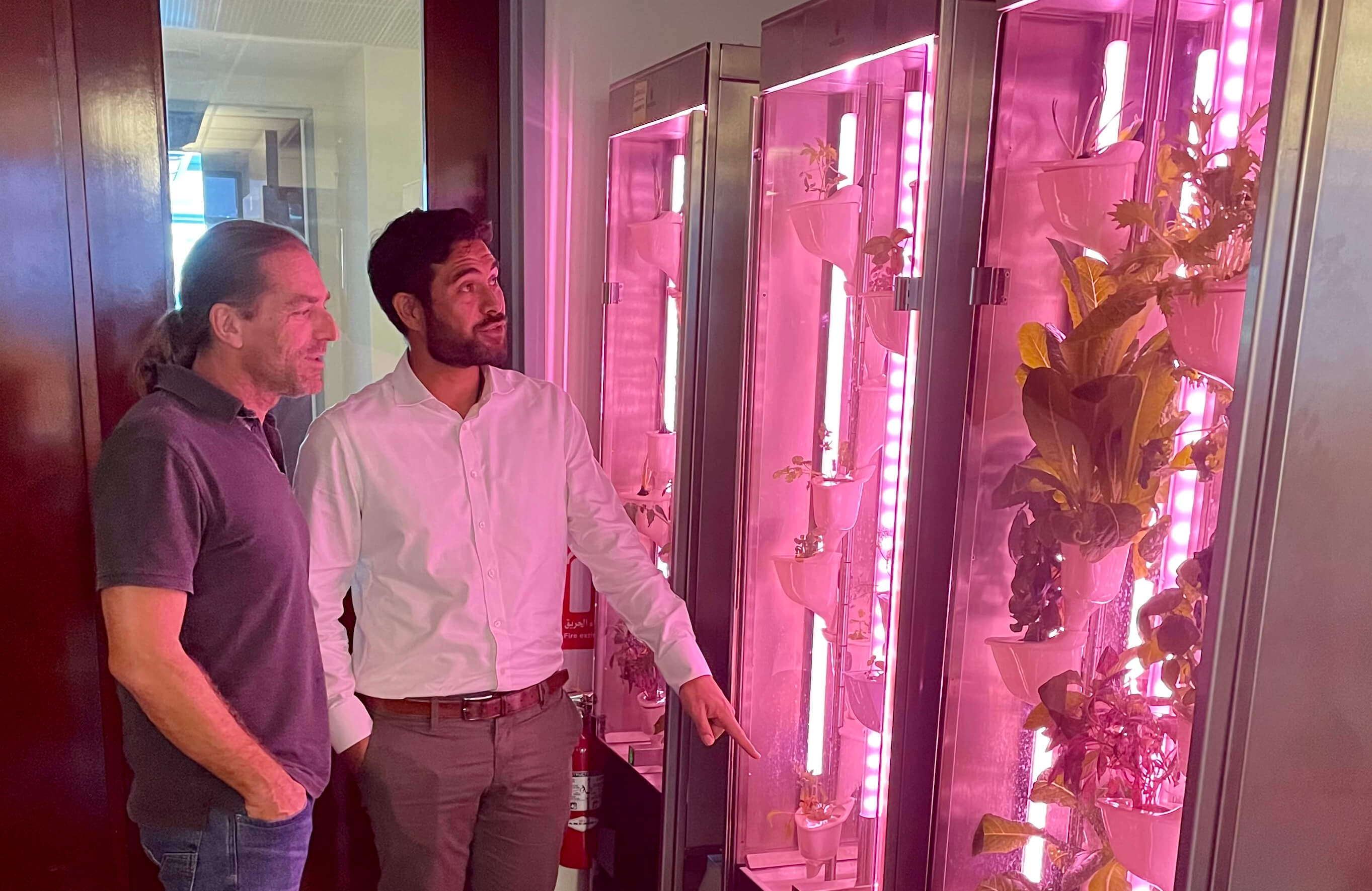KAUST startups Natufia and Edama pair to win NASA's Deep Space Food Challenge

(Left to right) Gregory Lu, Natufia founder, and Mitchell Morton, Edama's chief technology officer and co-founder, stand before the Natufia-designed smart indoor kitchen garden.
Two KAUST AgriTech startups, Natufia and Edama, are among the ten international winners in NASA's competitive Deep Space Food Challenge. NASA and the Canadian Space Agency (CSA) have jointly recognized Natufia and Edama for demonstrating excellence in helping to bring innovative food production technologies to space. A show highlighting the challenge will air on November 9, 2021, on NASA TV with details about the winning solutions and what's next for the winners.
Advancements in space technology are happening worldwide, with innovators looking for ways to expand the human space presence while also managing in-space resources. NASA's Grand Challenges are open to leading-edge companies who offer solutions that solve space-related problems with novel capabilities. As astronauts need a healthy diet in space, the Deep Space Food Challenge called for new food production technologies requiring minimal resources and generating limited waste to provide nutritious and tasty food for long-duration missions.
Based at the KAUST Research and Technology Park, Natufia and Edama joined forces as partners in the competition, with each contributing different areas of expertise for the challenge. The duo's joint solution seamlessly integrates advanced automated hydroponics, macroalgae farming and composting systems into a low-maintenance, user-friendly, closed-loop food production ecosystem. The system focuses on efficiently recovering and reusing waste resources to maximize productivity and reduce the dependence on external inputs. It can supply a diverse and nutritious menu of fruit, vegetables and algae-based dietary supplements.
"We're delighted with the success of this KAUST startup collaboration. The progress of Natufia and Edama demonstrates the strong entrepreneurial ecosystem we are building in Saudi Arabia to solve problems that are relevant to the whole world and all of humanity through science and technology," said Dr Kevin Cullen, vice president of KAUST Innovation.

Close view of a starter plant growing in the Natufia-designed smart indoor kitchen garden. Photo: KAUST / J. West
Both startups have focused on solving food-security issues in Saudi Arabia, and believe soil-less cultivation is a powerful tool in sustainable farming, particularly water-use efficiency. As the first company of its kind in Saudi Arabia, Edama offers organic waste recycling solutions for municipalities and small-scale communities, aiming to transform the way waste is managed in the Kingdom. As a KAUST spin-in, Natufia is a multi-awarded research lab specializing in hydroponic systems, providing unique proprietary technology that enables fresh plants and herbs to grow year-round.
"This award from NASA is a big recognition for Natufia's innovation. Our proprietary and KAUST-developed technology, in partnership with Edama, can address challenges from many industries. If Natufia can grow plants in space, it can grow them anywhere: from homes to offices to restaurants," said Gregory Lu, Natufia founder.
Mitchell Morton, Edama's chief technology officer and co-founder, said, "It's an honor to have been selected by NASA. Their endorsement is an authoritative validation of our concept and a great source of motivation to drive us through the development process."
Natufia and Edama are examples of the top talent that KAUST both developed and attracted to energize the rich startup ecosystem in Saudi Arabia and solve global problems, including food sustainability. As the deep tech heart of Saudi Arabia, KAUST continually seeks out future collaboration and investment opportunities that will result in innovations across the spectrum of climate, health and other pressing global issues.

